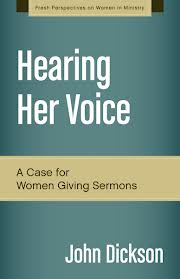Review: Stendahl’s The Apostle Paul and the Introspective Conscience of the West

I have embarked on a self-imposed project to explore the links between the New Perspective and a new apologia.
It seemed good to begin with Krister Stendahl’s 1963 classic article, The Apostle Paul and the Introspective Conscience of the West. It’s a short piece that is a good insight into the beginnings of the New Pespectives movement. It raises the basic questions pertaining to the disparities between the Pauline, Reformation and modern milieux and chases these down some hermeneutical rabbit holes.
Not that Stendahl goes too deep. It’s a pleasant read which gives the broad brushstrokes and only glimpses of the obvious academic rigour that lies underneath.
It suits my purposes to summarise and condense his argument, codifying and storing away the framework as I continue my wider exploration.
Point #1 – The modern world wrestles with matters of introspection and individual conscience. This is not what Paul-the-fomer-Pharisee wrestles with.
Stendahl uses the psycho-social term “introspection” and “introspective conscience.” It is crucial but short-hand language and he never unpacks exactly what he means by it. Here is a connection point between Pauline hermeneutic and the modern world which is at the heart of my project. The hermeneutical end of this connection is Stendahl’s phrase “Pauline awareness of sin” for which, Stendahl suggests, we have a primarily Lutheran and Augustinian lens that is not entirely aligned with Paul’s concerns.
Stendahl’s insistence is that Paul has had no real problem with law keeping; after all, the Law includes elements of grace despite the Lutheran law-grace dichotomy. Paul’s concern is with the Law itself, not with the keeping of it.
It was not to him a restoration of a plagued conscience; when he says that he now forgets what is behind him (Phil 3:13), he does not think about the shortcoming of his obedience to the Law, but about his glorious achievements as a righteous Jew, achievements which he nevertheless has now learned to consider as “refuse” in the light of his faith in Jesus as the Messiah. (200-201)
Yes, there is an impossibility about keeping the law. But the real issue is that even when Paul is righteous ‘according to the Law’ it is nothing to the grace now revealed in Jesus.
The communal & convenantal emphases of the New Perspective is apparent here. For Stendahl, Paul’s concern is not to assuage individual conscience but to demonstrate that the two communities – those who have lived under the old covenant of Law, and those who have been a Law unto themselves – now must approach God in the same way, through Christ.
Point #2 – Paul-the-Christian’s introspection is not shaped around a personal wrestle with sin.
A comparison is made here between the Pauline world and the world of the Reformation in which Luther stood firmly on the legacy of Augustine, who was the “first modern man” (205) who “may well have been one of the first to express the dilemma of the introspective conscience” (203).
“It is in response to their [the Augustine/Lutheran milieu] question, “How can I find a gracious God?” that Paul’s words about a justification in Christ by faith, and without the works of the Law, appears as the liberating and saving answer… (203)
Augustine and the Church was by and large under the impression that Paul dealt with those issues with which he actually deals: 1) What happens to the Law (the Torah, the actual Law of Moses, not the principle of legalism) when the Messiah has come? – 2) What are the ramifications of the Messiah’s arrival for the relation between Jews and Gentiles? For Paul had not arrived at his view of the Law by testing and pondering its effect upon his conscience; it was his grappling with the question about the place of the Gentiles in the Church and in the plan of God… (204)
Paul’s chief concern was about the inclusion of the Gentiles into Christ-centred grace, not the exclusion of sin-wracked Jews from grace because of their Law. Paul’s own “conversion” is not so much an individual relief of conscience, but a prophetic (and very Jewish) call to be the Apostle to the Gentiles to gather those who are now included.
To break into commentary for a second – this is a useful consideration. I recognised many years ago that the great evangelistic sermons of Acts do not accord with the evangelistic shape of the modern age. Here I see in Stendahl an exploration of why this is so.
Point #3 – The Introspective Conscience framework gives rise to hermeneutical difficulties.
This section is the most valuable part of the article. Stendahl unpacks some considerable implications. The launching point is this:
Where Paul was concerned about the possibility for Gentiles to be included in the messianic community, his statements are now read as answers to the quest for assurance about man’s salvation out of a common human predicament. (206)
Paul’s concern is to demonstrate that
Once the Messiah had come, and once the faith in Him – not “faith” as a general religious attitude – was available as the decisive ground for salvation, the Law had done its duty as a custodian for the Jews. (206)
But
In the common interpretation of Western Christianity, the matter looks very different. Once could even say that Paul’s argument has been reversed into saying the opposite to his original intention. (206)
The Law, which was for Paul an obsoleted custodian for the Jews until the coming of Christ (in which Christ himself is prefigured in the gracious aspects of the Law), has become the tool of introspection – a custodian that takes each of us individually to Christ by crushing us with its righteousness.
There is a true disparity here and Stendahl helps us know what is at stake. It is the shape of the gospel of itself, and certainly the defining points of an effective kerygma.
Paul’s argument that the Gentiles must not, and should not come to Christ via the Law, i.e., via circumcision etc., has turned into a statement according to which all men must come to Christ with consciences properly convicted by the Law and its insatiable requirements for righteousness. (207)
Point #4 – Modern introspective exegesis can be rebutted.
Stendahl finally gets to his positive consideration of the matter and gives a quick rendition of the New Perspective lens (and, yes, he does use the term “new perspective” in passing (214)). My summation is this:
1) Sin is real. “Rom 1-3 sets out to show that all – both Jews and Gentiles – have sinned and fallen short of the Glory of God.” This is properly conceived as covenantal sin of peoples, not the travailing conscience of individuals. (208)
2) Paul’s personal awareness of sin is not a present wrestle of conscience, but a past fact of his persecuting actions against the people of God. Paul uses this to speak of the covenantal inclusion of the godless – as a rhetorical device, not a conclusion. If “Paul’s enmity to Jesus Christ and the church” can be “gloriously and gracefully blotted out”, how much more can God justify the “weak and sinful and rebellious” (209)
3) Paul’s consideration of present troubles is one of “weakness” and attack from the enemy. When it comes to matters of conscience he more readily speaks of victory in Christ and “his good conscience before men and God.” (210)
4) Romans 7, which is meant to be the epitome of introspection is actually an “acquittal” of the Christ-focussed ego, “not one of utter contrition.” This is because Romans 7 is an argument in which good (but ineffective and obsoleted) Law can be made distinct from “bad Sin.”
“If I do what I do not want, then it is not I who do it, but the sin which dwells in me.”… This distinction makes it possible for Paul to blame Sin and Flesh, and to rescue the Law as a good gift of God.” (212)
We should not read a trembling and introspective conscience into a text which is so anxious to put the blame on Sin, and that in such a way that not only the Law but the will and mind of man are declared good and are found to be on the side of God. (214)
Stendahl’s considerations are not without difficulty, both exegetically and practically. I am driven to read Romans in particular and to weigh Stendahl up against Scripture. I am concerned practically in the downplaying of present sin in terms of weakness and enemy attack; it seems but a variation on “the devil made me do it.”
Nevertheless, this has been an intriguing and enjoyable beginning to my little project. I will move from here either backwards to Augustine, or forwards to Dunn and Wright and others who have progressed the New Perspective. I’ll probably do both.









